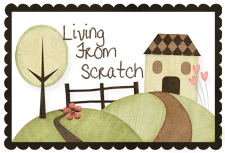The meaning of traditional varies widely from person to person. It can be personal, family or cultural. I'm trying to learn more about foods that are traditional to my family (canned pickles and veggies, for instance) and to the early American culture. There are people out there who follow the paleo or "caveman" diet. Others follow diets more closely resembling the early pioneers. If you are a traditional foodie-what is your tradition? Do you cook like Ma Ingalls or one of our native ancestors? Or do you cook foods from your family's homeland? I'm truly curious, because there are so many ways of thinking out there that everyone who says they are eating "traditionally" could be eating something completely different. And that intrigues me.
Traditional diets are so important. Overwhelming anthropological and anecdotal evidence shows that a traditional (or indigenous or native) diet, ANY native diet, is better than the western diet that most of us Americans eat every single day. The Masai of Africa survive on meat, blood and milk. There are Scandinavian cultures who, traditionally, ate little but yak and lichens. Other groups survive on fish. They are all healthier eating those diets than anyone eating a western diet, even a "healthy" western diet. It makes one think...and it makes one question any plate, pyramid or other diagram the government puts out there to advise me on my eating habits. But, I digress. I'm planning a much longer post on this subject for some other time, so for now, let's just say I'm curious about native diets and which ones are still alive and kicking in these oh-so-modern times.
If you have a good traditional food story, please share it with me. I might even share it in a future blog post!
skip to main |
skip to sidebar
Design by Peachy Keen Design





0 comments:
Post a Comment